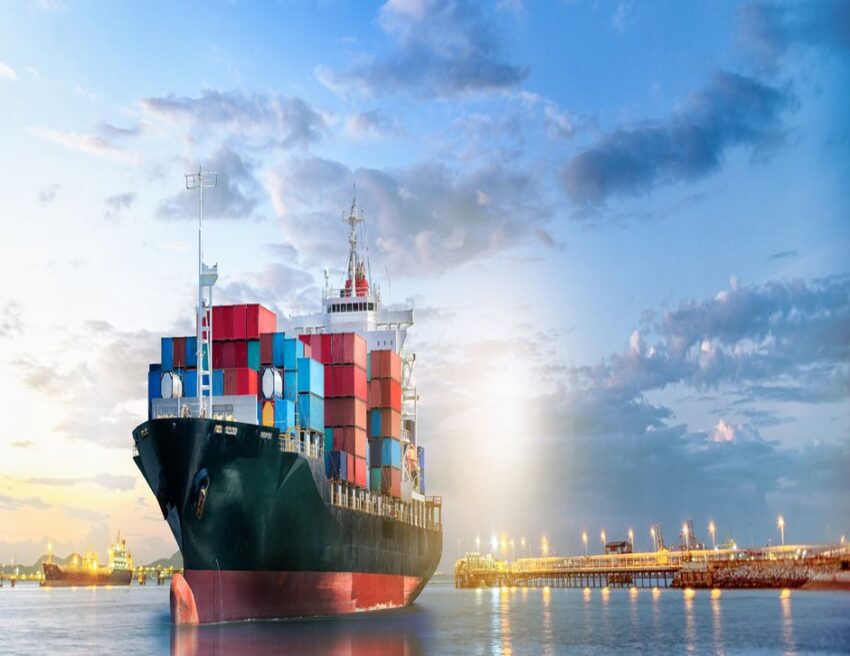
Last year, the cargo ship Felicity Ace carrying Porsches, Lamborghinis, and Bentleys caught fire and sank. Volkswagen confirmed that the losses which amounted to over $300 million would be covered by cargo insurance. This is not an isolated incident. Even just a month back, the container ship Pacific Express lost 10 containers overboard due to stormy weather. Every year hundreds of containers get lost in the seas and your cargoes are exposed to considerable risk as they move through the rough seas, several ports, and numerous modes of transport before reaching their destination. Factors like weather, loss of containers, fires, and theft are beyond your control and this is where marine cargo insurance comes into the picture.
In today’s post we are going to talk about the importance of buying marine cargo insurance for independent freight forwarders and how they can help to safeguard the high value shipments in the case of an untoward incident in transit.
What is marine cargo insurance?
Marine cargo insurance allows freight forwarding companies to protect their sea freight from theft, damage, or general average. Shipping companies as well as consignees can buy marine cargo insurance policies from niche, providers to secure their valuable shipments from all kinds of damage. By paying just a fraction of the net value of your cargo you can protect yourself from losses in the case of any accident or untoward incident.
The advantages of marine cargo insurance for independent freight forwarders
Insuring the sea freight shipments will protect independent freight forwarders like you from financial losses no matter if your shipment gets damaged or not. The best benefits of purchasing marine cargo insurance are:
- All risk coverage: It secures the shipper/consignee against loss or damage of the shipment due to improper handling, theft, damage, or other external factors.
- Warehouse to warehouse coverage: Marine cargo insurance also keeps you covered against losses while the shipment is in transit from one warehouse to another.
- General coverage: This covers any partial losses to your ocean freight shipments.
Simply put, purchasing cargo insurance gives you much-needed peace of mind in the knowledge that your valuable cargo is secured. It will protect your cash flow from unprecedented stoppage and generate profits when included in the coverage. Moreover, most insurance providers offer efficient coverage of claims.
Types of marine cargo insurance
-
Open coverage
Open coverage will insure your cargo for one year and you can include several cargoes under one such insurance. This kind of insurance is ideal for risk management in case you ship frequently. You can choose from two kinds of open coverage insurance- renewable and permanent. The renewable insurance can be renewed after the delivery of the cargo. Therefore, they are ideal for single trips. On the other hand, the permanent insurance allows for unlimited trips of several cargoes within a specified time frame.
-
All risk
The all-risk cargo insurance covers almost all causes of loss or damage provided the cargo is new and not prone to rot, or damage. However, this kind of insurance doesn’t cover losses due to natural disasters, wars, strikes, negligence of the shipping company, customs delays, unpaid goods, or rejections.
-
Free from particular average
This kind of insurance only covers substantial losses or damage to the shipment. It also covers partial losses in cases it happens due to sinking, collision, burning, or sinking. One major advantage of this insurance is that it covers all the risks that are not covered by all-risk insurance policies including natural disasters, collisions, bad weather, sinking, theft, non-delivery, etc.
-
General average
The general average insurance is a basic requirement for ocean freight which insures the policy holder for partial losses to the cargo. This kind of insurance works on the principle that the owners of all shipments in the vessel contribute to the losses incurred by all or any cargo. Therefore, in this kind of cargo insurance, you need to pay for the losses of other shipments even if your own cargo makes it to its destination intact.
Things that are not covered by marine cargo insurance
Although cargo insurance covers all your damage, it might not cover certain special freight types such as dangerous goods, certain kinds of electronic devices, and highly delicate and costly items. Additionally, the cargo insurance provider isn’t going to cover damages that have been caused by poor packaging or defective items in your cargo.
Reasons why you need to insure your cargo
Your shipment is prone to several risk factors as it moves from one territory to another passing through different hands, different ports, and different trucks. Additionally, external factors like weather and traffic conditions could also play a part in cargo damage. Keep in mind that the longer the transit time of your shipment, the greater the risks of damage, loss, or theft. Additionally, the loss or damage of an expensive shipment could take a heavy toll on your finances unless you insure it.
Even if your carrier is legally liable to cover the loss or damage of your shipment, their limit is usually much less than the actual value of your cargo. Nevertheless, there are many scenarios where marine cargo insurance isn’t necessary. Therefore, it is always suggested that you as the independent freight forwarder should check the incoterms of your contract to find out its scope and only pay for insurance when it is required.


